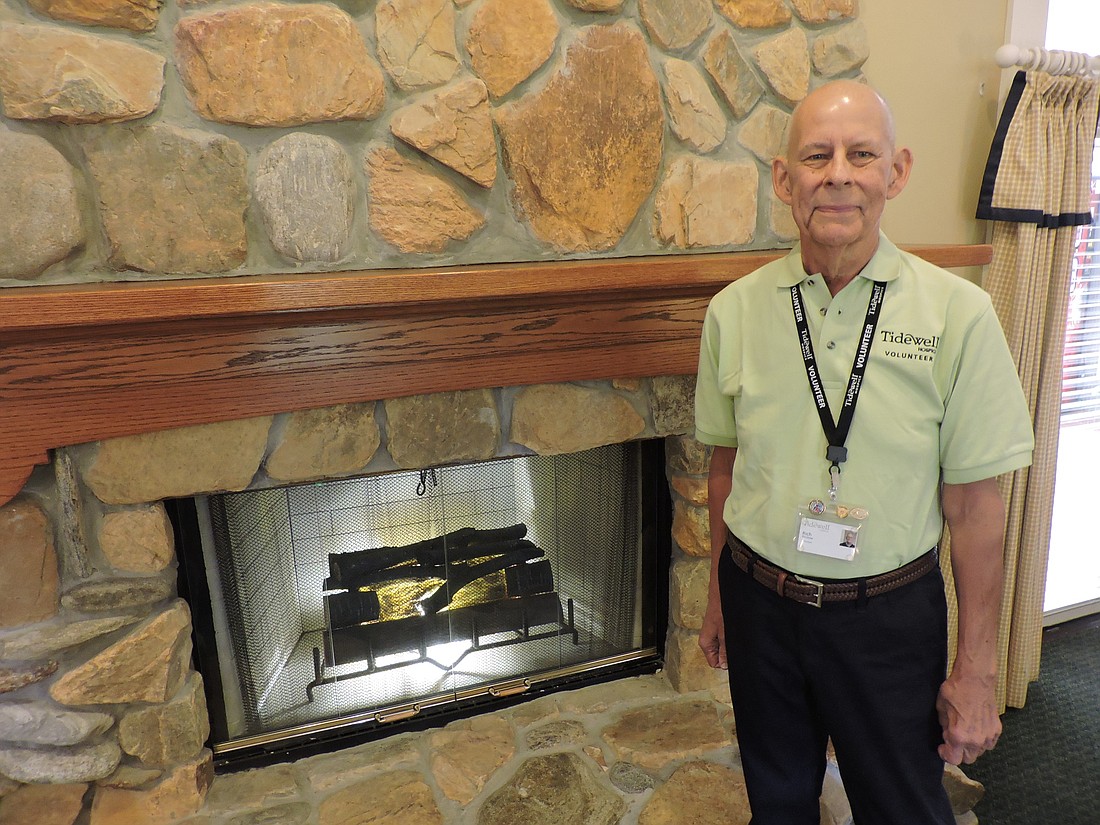- May 3, 2025
-
-
Loading

Loading

It's a term we throw around all too often. We refer to our sports stars as "heroes."
We shouldn't.
At 9:30 a.m., March 16 at Our Lady of the Angels Catholic Church in Lakewood Ranch, a service will be held for Lakewood Ranch's Richard Reskow, who died Dec. 12 after a long battle with prostrate cancer.
I don't know that anyone will call Reskow, who died at 77, a hero.
They should.
I only met Reskow once, in August of 2017 during his volunteer shift at Tidewell Hospice Ellenton. I wanted him to explain to me the importance of people volunteering at Tidewell Hospice and he described his experience in that role. I didn't count on what was to come.
Reskow, bright and positive the entire time, eventually talked about his own battle with cancer, one he knew might be too tough to defeat.
I saw this tall man, still spry into his mid-70s, with these bright, bright eyes, never flinch as he faced his own mortality. His concern was not so much for his own welfare, but for helping others who were going through what he considered a transition. This was a man with unwavering faith.
His wife Teri Zak-Reskow said his overall strength increased as his body declined.
"It actually was a little surprising that he took to (Tidewell Hospital volunteering) so well," she said. "His whole attitude toward life changed when he got cancer (2007). I guess he realized it was precious. He first got involved with the Center for Building Hope (which closed) and he met a lot of cancer patients there. He could relate to them. It was his own support group."
He sought out ways to make his life more meaningful, and he found Tidewell Hospice.
"At Tidewell, he enjoyed working directly with the patients," Zak-Reskow said. "He would talk to them, get them out of their shells. In his later life, he mellowed. He just wanted to help other people, help people in his same situation."
Like everyone else, I've seen cancer and the toll it takes. I know a key word is "escape." How do you get a few moments away so you could breath fresh air without your mind being tortured.
Reskow didn't think that way, even if some of those he was trying to help did. He would find ways to get some of the patients, who had declined to talk with anyone, to converse. And he was at his best during vigils, in those final moments, when no one came to be bedside.
"He said people shouldn't die alone," Zak-Reskow said.
Eventually, he wrote 20 vignettes about the patients and passed them on to Tidwell to be used in their volunteer training materials. He hoped those stories captured what it is like to be a volunteer.
He did this knowing he might be in someone else's book.
After I met with Reskow in August of 2017, his health started to deteriorate, although I didn't know it. He started having pain in his back and shoulder area, but he didn't think anything of it. The cancer, however, was spreading to his bones. The hormone treatments he was taking stopped working. Once that happens, Zak-Reskow said the options are few.
She said he tried a couple of clinical trials but his prostate-specific antigen (PSA) levels started to "go crazy."
They started him on chemo, kind of his last resort. He had tumors in his spine.
Last February, he started to decline quickly. He was hardly able to get around. The cancer spread to his jaw. The radiation was delivered with horrible side effects.
In March, he was forced to stop his volunteer work at Tidewell Hospice.
"That was heartbreaking," Zak-Reskow said. "It was really hard on him. He thought maybe if he did some more radiation, he would start feeling better and he could go back. But I knew."
By the fall, Zak-Reskow said her husband was resigned and ready to go. He talked to her at length and kept asking her what he should do. The struggle no longer was about him. He wanted to be there for her.
"I told him I would support whatever he wanted to do," she said. "If you don't want to go through chemo, don't do it for me."
In September he was going to try another chemo session, but he could hardly walk. It was time to call Tidewell Hospice.
"They were wonderful," Zak-Reskow said. "I could keep him at home until the end, but I never could have done it by myself. A Tidewell nurse was a team leader and there always was somebody coming to help. They always were available and very responsive in terms of his pain.
"He knew what to expect and we both have very strong faith. We feel there is an after-life that is better than this life. That counts for a lot."
Richard Reskow had a successful professional life, which included 23 years as a sales, marketing and editorial executive for McGraw Hill. He moved to Lakewood Ranch in 2001 expecting to enjoy the good life.
That good life was much different than what he expected, but to all those he helped, it was more than a good life.
He was their hero.
To read my 2017 story about Richard Reskow, click here.